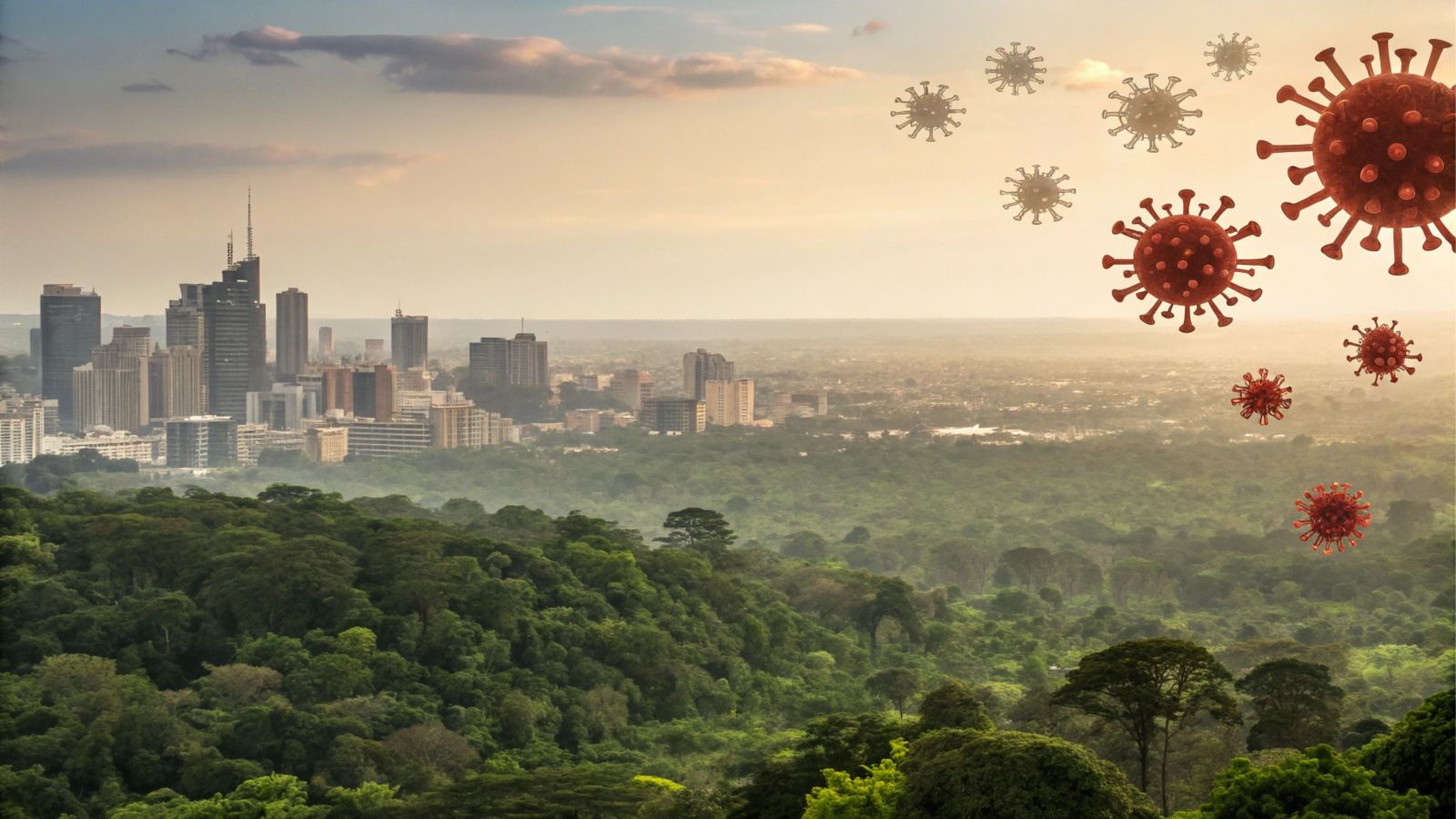Follow us on Google News (click on ☆)

Ecosystems play a crucial role in regulating diseases. When they are balanced, they limit the spread of pathogens. However, human activities, such as climate change and biodiversity loss, disrupt this balance. For example, global warming promotes the expansion of mosquitoes carrying diseases like dengue.
The destruction of natural habitats increases contact between humans, domestic animals, and wildlife. These interactions facilitate the transmission of viruses, such as HIV, which jumped from monkeys to humans. Similarly, bats, natural reservoirs of many viruses, are suspected to be at the origin of the COVID-19 pandemic.
The root causes of pandemics, such as poverty or deforestation, are often overlooked in favor of immediate causes, like viral transmission. Yet, addressing these underlying factors is essential to prevent future crises. For example, hunger drives some populations to hunt wild animals, increasing the risk of zoonoses.
A global approach, called "planetary health," proposes to reconcile human health with the preservation of ecosystems. This interdisciplinary vision aims to address both the immediate and root causes of pandemics. It is increasingly taught in universities, preparing future decision-makers to better manage these challenges.
Thus, to reduce the risk of pandemics, it is imperative to protect ecosystems and tackle socio-economic inequalities. Human health and that of the planet are inseparable, and their preservation requires concerted action on a global scale.
What is planetary health?
Planetary health is an interdisciplinary approach that links human health to the health of ecosystems. It is based on the principle that our well-being directly depends on the stability and richness of natural systems. This global vision aims to preserve resources while improving the quality of life for populations.
Ecosystems provide essential services, such as water purification, climate regulation, and food production. When they are degraded, these services are compromised, which directly affects human health. For example, deforestation can increase the risks of infectious diseases by bringing humans closer to wild animals.
Planetary health proposes integrated solutions to address environmental and health issues. It encourages collaboration between scientists, policymakers, and local communities. The goal is to create policies that protect both nature and populations, taking into account social and economic inequalities.
By adopting this approach, it is possible to prevent health crises while preserving ecosystems. Planetary health thus offers a framework for building a more sustainable and equitable future, where human health and that of the planet are inseparable.